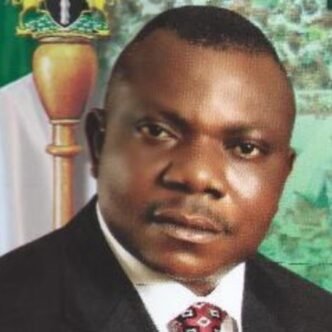Bill Sponsor: Hon. Julius Ihonvbere and Hon. Mitema Obordor. Bill Stage: Third Reading
The Nigerian House of Representatives is currently reviewing a significant legislative proposal known as the “University Teaching Hospitals (Reconstitution of Board, Etc.) Act (Amendment) Bill, 2024,” identified as HB. 1445. The bill aims to amend the existing University Teaching Hospitals Act of 2004 to address key challenges faced by these crucial healthcare institutions.
On September 25, 2024, HB. 1445 successfully completed its First Reading in the House of Representatives, paving the way for subsequent legislative steps, including the anticipated Second Reading and Committee Assignment. However, the bill has not yet reached the final passage stage.
Although the complete text of HB. 1445 has not been publicly released, insights into its likely objectives can be drawn from similar proposals that have come before it. Typically, amendments to the University Teaching Hospitals Act focus on several contentious areas that impact the governance and effectiveness of these institutions.
One prominent aspect likely included in HB. 1445 is the redefinition of the qualifications required for the Chief Medical Director (CMD), the head of the hospital. Currently, the Act mandates that this position be filled by a medically qualified physician with substantial experience. However, there is a growing push to broaden this eligibility to allow other qualified healthcare professionals—such as pharmacists, nurses, or administrators—to assume leadership roles. This proposed change has sparked considerable debate within the Nigerian healthcare sector, with proponents arguing for a more diverse range of expertise in hospital management.
Another possible amendment under consideration is the rebranding of the hospital leadership title. The bill may suggest replacing the term “Chief Medical Director” with more contemporary titles such as “Director General” or “Chief Executive Officer.” This shift would align the nomenclature with modern administrative practices, reflecting a more comprehensive scope of responsibilities that encompass various aspects of hospital management.
Additionally, HB. 1445 may include provisions to define and limit the tenure of the CMD position, establishing a clear framework for leadership transitions within these hospitals. Such measures could foster accountability and continuity in management, ultimately enhancing the operational efficiency of tertiary hospitals.
Furthermore, the amendment bill might seek to update the Schedule of the Principal Act to formally recognize and provide a legal framework for any newly established or upgraded Federal University Teaching Hospitals. By codifying these changes, the legislation would help ensure that the governance of these institutions remains relevant and effective in meeting current healthcare demands.
The potential impacts of HB. 1445 could be profound, leading to improved governance, enhanced service delivery, and ultimately better outcomes for patients at university teaching hospitals across Nigeria. As the legislative process unfolds, stakeholders in the healthcare community—ranging from medical professionals to hospital administrators—are expected to closely monitor this development, given the significant implications for the future of healthcare delivery in the country.
In summary, the University Teaching Hospitals (Reconstitution of Board, Etc.) Act (Amendment) Bill, 2024, represents a critical step toward reforming and modernizing Nigeria’s tertiary healthcare system. With strong support from the sponsors, the proposed amendments could pave the way for enhanced governance and improved healthcare services, addressing the pressing needs of both patients and healthcare providers.













